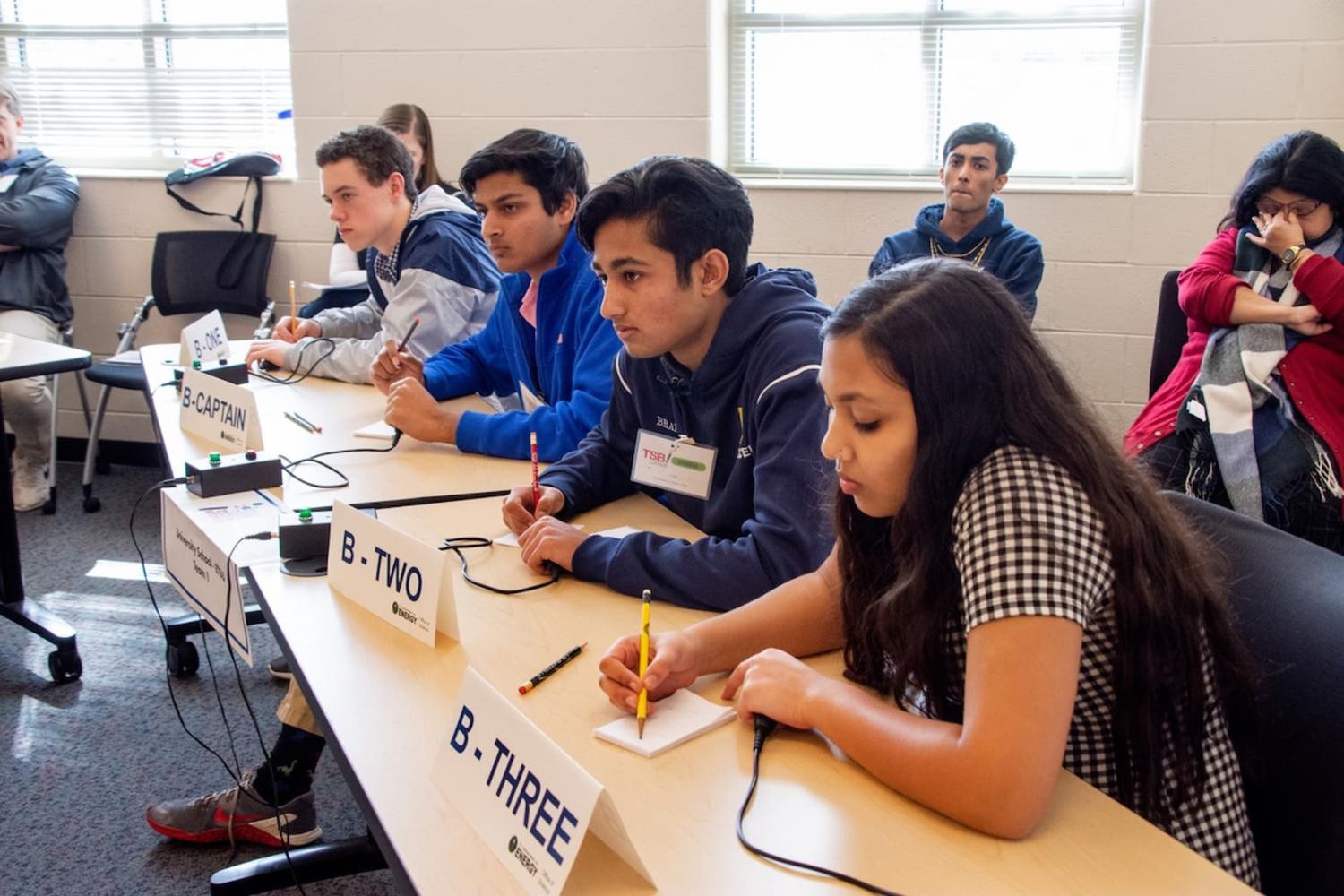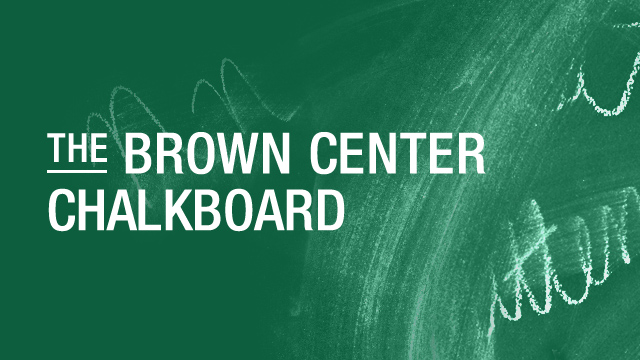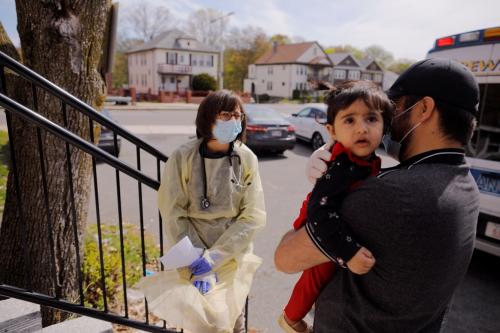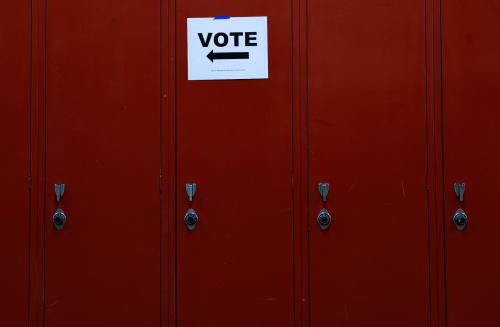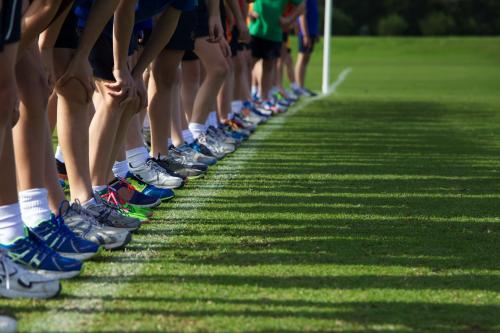Civil, informed debate is essential for any healthy democracy. This is truer than ever judging from the often uncivil, fact-free public discourse one sees too often on television and social media. Knowing how to debate this way is a learned activity, yet only a small fraction of students in our secondary schools acquire such skills.
But does participation in formal debate training improve educational outcomes? That question is especially important since the height of the COVID-19 pandemic, which widened racial and income-related disparities in educational outcomes.
In this context, any good educational news should be welcome. Fortunately, there is some, in the form of a recently published study conducted by one of the authors of this piece (Schueler, along with Katherine Larned of Harvard University). They studied the multi-year efforts of the Boston Debate League (BDL) to promote debate both as an extracurricular activity and in the classroom as an instructional approach. The new study and its positive outcomes are important both because they come from a historically marginalized student population—students of color from low- to moderate-income families—and because the study was conducted in ways that address shortcomings of earlier studies of the educational impact of debate participation.
Competitive policy debate: background
The focus of the new study is the impact of participating in competitive policy debate on educational achievement. Policy debate is an extracurricular activity, primarily in high school.
In policy debate competitions, teams—with one or two individuals per side—debate a single resolution throughout the school year, requiring participants to learn about one policy area in depth (such as criminal justice, immigration, or arms sales). The policy debate format puts more emphasis than other forms of debate or speaking competitions (such as extemporaneous speaking or oration) on evidence and research. In this way, policy debate competitions foster the participant’s research and reasoning skills, in addition to their public speaking abilities.
Policy debaters historically have come from high-income public schools. However, the BDL serves a different student population. As shown in Figure 1, compared to the general Boston Public Schools student population, the BDL debaters are more likely to be students of color and/or growing up in economically disadvantaged homes.
The BDL is one of more than 20 leagues across the country affiliated with the National Association for Urban Debate Leagues, which for over two decades has facilitated competitive debate in public school districts. In addition to its competitive debate activities, including the hosting of debate tournaments and operation of a summer debate camp, the BDL also facilitates the use of debate techniques in classroom teaching in middle and high schools in the Boston area.
Studies of the educational value of debate to date have been limited in number and faced other constraints: narrow comparison groups, limited data, and challenges to taking account of a self-selection process due to participation in competitive debate being “opt-in.” Nonetheless, prior studies suggest that debate may have positive impacts on educational attainment.
New research from Boston
The new study advances prior work in several respects. First, it addresses the self-selection problem by using quasi-experimental statistical techniques. In particular, the study compares the change in outcomes for students participating in debate with the change for observably similar students who did not join debate over the same period. The study also compares the educational performance of students to themselves over time—comparing years when they did debate versus years when they did not. These features allow the researchers to isolate the impact of debate programs from preexisting differences between students who decide to join the debate team and those who do not. Second, the study capitalizes on districtwide data from the Boston Public School system, which allows for the selection of more credible comparison groups. Third, the study tested the effect of debate on certain novel outcome variables: language and reading subskills (not just overall test scores), as well as longer-term outcomes such as high school graduation, college going, and the type of postsecondary institution attended.
The results show that debate makes a real, positive difference, as measured by multiple outcomes. Debate produced statistically significant improvements in degree participants’ English Language Arts (ELA) test scores. As we illustrate in Figure 2, the size of the impacts was large. They were comparable in size to the typical amount of growth an average 9th grader makes in reading over the course of a full school year (0.19 standard deviations) and much larger than the average impact of educational interventions on reading achievement (at least those that have been evaluated using randomized control trials, which is estimated to be 0.05 standard deviations).
Encouragingly, the largest gains were notched among the students who were lowest performing prior to joining debate, suggesting the activity does not simply benefit those who are already excelling academically. More broadly, the study also found positive impacts of debate participation on graduation and college enrollment. The study did not find significant effects of debate participation on math scores, school attendance, or disciplinary infractions.
Conclusion and further implications
Debate has the potential for much greater scalability. A back-of-the-envelope calculation suggests that these programs are comparably (if not more) cost effective than other high-profile educational interventions. This suggests that policy debate is a rare activity with the potential to meaningfully improve reading achievement among public secondary school students, to promote critical thinking skills that are in short supply, and to do so in a way that promotes equity of educational outcomes. Further, the skills gained through debate are transferable and help prepare young people for college, career, and meaningful engagement with the world.
As noted above, BDL not only offers debate during out-of-school time, but it integrates debate techniques in traditional classrooms as well. Another one of us (Litan) has featured debate as an important method of improving educational outcomes, not just among minority and low-income students, but for all students. Sample videos of what debate in the classroom looks like can be found on the Edutopia website. While “debate-centered instruction” or “debate across the curriculum” has not yet been subjected to the same kind of rigorous statistical analysis as competitive debate, there are logical reasons and practical on-the-ground suggestive evidence that debate techniques embedded into classroom teaching can improve educational outcomes. More school districts should experiment with them and partner with researchers to study their impacts.
The Brookings Institution is committed to quality, independence, and impact.
We are supported by a diverse array of funders. In line with our values and policies, each Brookings publication represents the sole views of its author(s).



